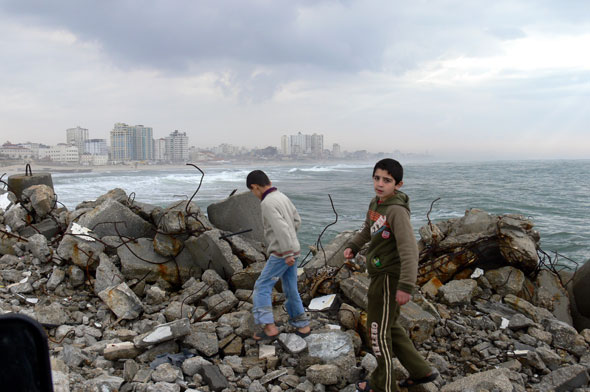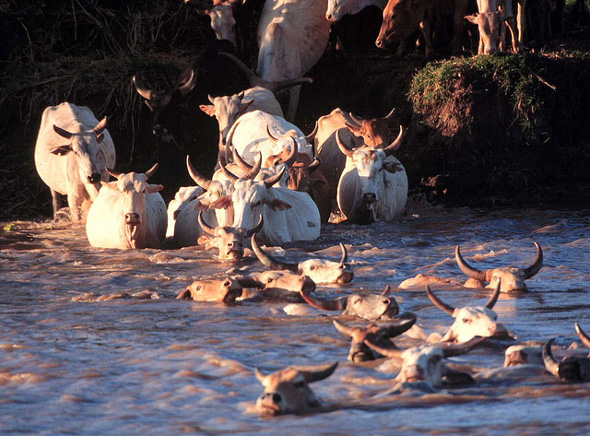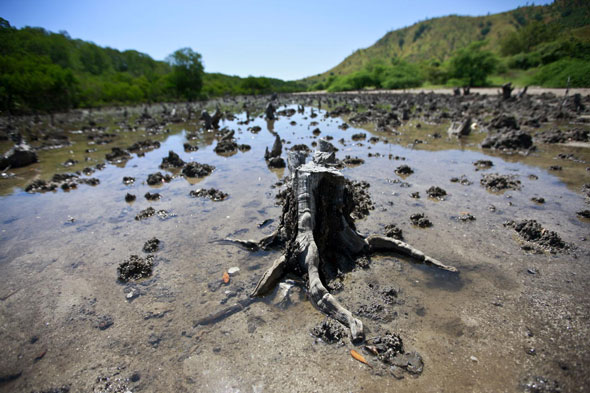-
Lydia Polgreen, The New York Times
As Coal Boosts Mozambique, the Rural Poor Are Left Behind
›November 14, 2012 // By Wilson Center StaffThe original version of this article, by Lydia Polgreen, appeared on The New York Times.
When Augusto Conselho Chachoka and his neighbors heard that the world’s biggest coal mine was to be built on their land, a tantalizing new future floated before them. Instead of scraping by as subsistence farmers, they would earn wages as miners, they thought. The mining company would build them sturdy new houses, it seemed. Finally, a slice of the wealth that has propelled Mozambique from its war-addled past to its newfound status as one of the world’s fastest-growing economies would be theirs.
-
Connecting the Dots Between Security and Land Rights in India
›Across India, where I live and work, I can clearly see the connection between land rights and peace and security.
With respect to personal safety and security: 12 percent of all murders here are related to conflicts over land.
On a provincial level: few weeks go by without newspapers here reporting on violence between communities who are battling over land.
-
Beer: The Perfect Illustration of the Water-Energy-Food Nexus?
›The water-energy-food nexus seems to be garnering more and more attention in the media and elsewhere, and it’s easy to see why: it’s a relatively simple way to illustrate how interconnected the world is today and the kind of domino-like effects that scarcity can have.
-
Immediate Action Needed for Gaza to be Livable in 2020, Says UN Report
›October 3, 2012 // By Kate Diamond
Eight years from now, the Gaza Strip will have “virtually no reliable access to sources of safe drinking water, standards of healthcare and education will have continued to decline, and the vision of affordable and reliable electricity for all will have become a distant memory for most,” according to a United Nations report released last month. The bleak assessment concludes that without immediate action to address immense and interconnected economic, demographic, environmental, infrastructure, and social challenges facing Gazans, “the already high number of poor, marginalized and food-insecure people depending on assistance will not have changed, and in all likelihood will have increased.”
-
Water and Land Conflict in Kenya in the Wake of Climate Change
›
Earlier this month, there was a flurry of stories about brutal mass killings in clashes between the Pokomo and Orma communities over water and land in southeast Kenya’s Tana River County. The Kenyan media reported that about 30 people, including eight security personnel, had been killed and scores wounded, and reports on the death toll since last month are more than 100.
-
Michael Klare on the Race for What’s Left
›Around the world, as the most easily accessible natural resources are depleted, states are beginning to turn to more remote reserves to meet their needs and the shift may spark international tensions or even conflict, said Hampshire College professor Michael Klare in a recent interview with ECSP. “I worry very much about this growing global competition for the remaining resources in those parts of the world,” he said.
-
Ecological Footprint Accounting: Measuring Environmental Supply and Demand
›September 12, 2012 // By Kate Diamond
Twenty-five years have passed since the Brundtland Commission first brought sustainable development to international prominence. Today, the United Nations appears on track to replace the soon-to-expire Millennium Development Goals with “Sustainable Development Goals,” marking the extent to which the international community has embraced the concept. And yet, in spite of its prominence, a specific and measureable definition of sustainability remains lacking.
-
Changing Cities: Climate, Youth, and Land Markets in Urban Areas
›The number of urban slum dwellers worldwide is staggering. According to UN-Habitat, 827.6 million people live in slums around the world. Despite meeting a Millennium Development Goal to significantly improve the lives of at least 100 million slum dwellers by 2020, the total number of people living in these areas still increased by 55 million between 2000 and 2010. By 2020, the world slum population is projected to reach 889 million. With the majority of people now living in cities, urban priorities are synonymous with human security and environmental sustainability and must be accounted for in the global development agenda.
Showing posts from category land.






